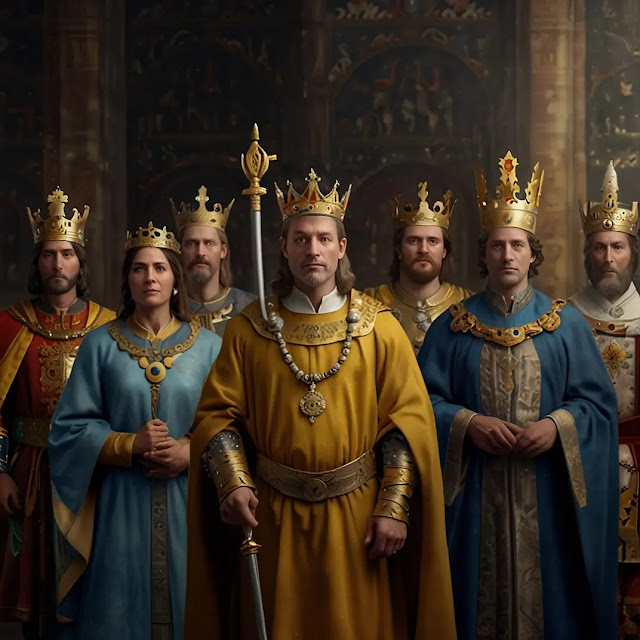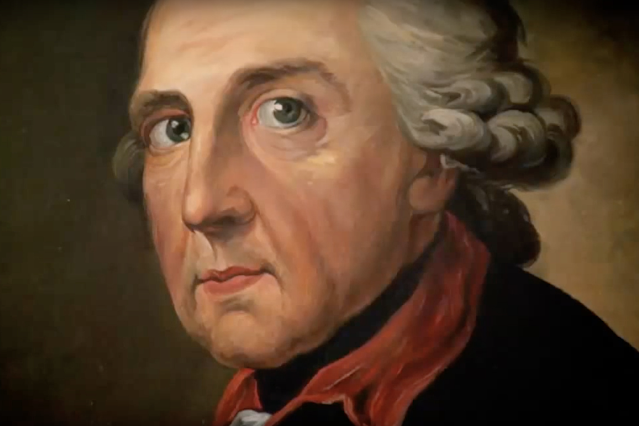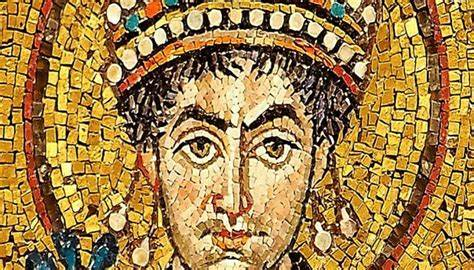The Kindest Emperors and Kings: A Journey Through Time
Throughout history, rulers have played pivotal roles in shaping societies. Yet, not all have been tyrants or conquerors. Some kings and emperors are remembered not for their wars or riches but for their compassion, wisdom, and kindness. In this article, we will explore ten notable figures from ancient times to more modern eras who exemplified kindness and benevolence in their reigns.
From Ashoka the Great, who transformed from a war-hungry ruler to a promoter of peace, to Queen Elizabeth II, who symbolized stability and care, these rulers demonstrated that true power lies not in domination or wealth but in the ability to inspire, support, and uplift others. Join us on a journey through time to discover the rulers who left an indelible mark on human history through their kindness and wisdom.
Ashoka the Great: The Emperor of Peace
Ashoka, the third Mauryan emperor of India, ruled from 268 to 232 BCE. His legacy is often defined by his transformation from a war-hungry ruler to a promoter of peace and Buddhism. After witnessing the devastating effects of the Kalinga War, Ashoka adopted non-violence and embraced Buddhism, which significantly influenced his governance.
He implemented policies that prioritized the welfare of his subjects, such as the establishment of hospitals, the planting of trees along roads for shade, and the promotion of trade. Ashoka also set up edicts, inscribed on pillars and rocks, that conveyed messages of compassion, tolerance, and moral conduct. His commitment to the well-being of his people earned him the title "Dhamma Raja," or "King of Righteousness." Ashoka's reforms and dedication to peace remain a significant part of India's cultural heritage, illustrating the profound impact a kind ruler can have on society.
Marcus Aurelius: The Philosopher King
Known primarily as a Stoic philosopher, Marcus Aurelius ruled as Roman Emperor from 161 to 180 CE. His reign is often characterized by his deep sense of duty and responsibility towards his empire. Unlike many of his contemporaries, Marcus Aurelius believed in ruling with wisdom and virtue, embodying the ideal of a "philosopher king."
His writings, known as "Meditations," reflect his commitment to self-improvement and ethical leadership. He sought to govern justly, implementing policies that aimed to alleviate the burdens of his citizens during times of plague and conflict. His humility and dedication to the welfare of his people have led historians to regard him as one of the most benevolent rulers of Rome, showcasing how a kind heart combined with intellect can guide a nation through hardships.
Akbar the Great: The Tolerant Monarch
Akbar, the Mughal Emperor who ruled much of the Indian subcontinent from 1556 to 1605, is celebrated for his progressive policies and efforts to foster religious tolerance. He was a firm believer in dialogue and understanding among different faiths, which was particularly remarkable given the religious tensions of his time.
One of his most notable contributions was the establishment of the Din-i Ilahi, a syncretic religion aimed at promoting unity among his Hindu and Muslim subjects. Akbar implemented a policy of sulh-i-kul, or "peace for all," which encouraged respect and cohabitation among diverse communities. His administration was marked by efforts to reduce taxes for the poor, support the arts, and promote education. Akbar’s kindness and open-mindedness helped create a more inclusive society, leaving an enduring legacy of tolerance and acceptance.
Frederick II of Prussia: The Enlightened Despot
Frederick II, also known as Frederick the Great, ruled Prussia from 1740 to 1786 and is recognized for his significant contributions to the arts, philosophy, and military reform. Perhaps most notably, he was an enlightened despot who believed in promoting the welfare of his subjects through modernization and education.
Frederick championed religious tolerance, allowing people from various faiths to coexist peacefully within his realm. He reformed the legal system, improved agricultural practices, and established a network of schools to ensure his subjects had access to education. Despite his military background, Frederick's commitment to progress and rational governance showed that a ruler could both lead with strength and embrace kindness, earning him admiration across Europe.
Emperor Meiji: The Architect of Modern Japan
Emperor Meiji transformed Japan from a feudal society into a modern industrialized nation during his reign from 1867 to 1912. His approach was marked by a unique blend of modernization and cultural preservation. While leading Japan into a new era, he prioritized the welfare and education of his citizens.
Meiji initiated a series of reforms aimed at improving the economy and social structure, encouraging public education, and promoting women's rights. His kindness was evident in his efforts to invite foreign experts to help modernize industries, ensuring the progress was inclusive. Despite facing immense challenges, Emperor Meiji's compassion and vision allowed Japan to emerge as a global power, all while maintaining a sense of national identity.
Emperor Constantine the Great: The Christian Emperor
Constantine the Great, who ruled as Roman Emperor from 306 to 337 CE, is best known for being the first Roman emperor to convert to Christianity. His reign marked a significant turning point in the history of the Roman Empire and Christianity itself.
Constantine's Edict of Milan in 313 CE granted religious tolerance to Christians, allowing them to worship freely without fear of persecution. This act not only promoted religious harmony but also set the stage for Christianity to become a dominant force in the Roman Empire and beyond. Constantine's efforts to unite and strengthen the empire through religion and his support for the Nicene Council showcased his dedication to the welfare of his subjects. His legacy as a kind and visionary ruler continues to be remembered and celebrated.
Queen Elizabeth II: The Symbol of Stability
Queen Elizabeth II, who reigned from 1952 to 2022, is one of the longest-serving monarchs in British history. Her reign is marked by her unwavering sense of duty, stability, and dedication to public service. Throughout her time on the throne, she navigated significant political, social, and cultural changes with grace and resilience.
Elizabeth's commitment to her role extended beyond ceremonial duties. She played a crucial part in the modernization of the British monarchy, embracing new technologies and media to connect with her subjects. Her televised Christmas broadcasts became a cherished tradition, showcasing her warmth and empathy. The Queen's efforts to maintain unity within the Commonwealth and her involvement in numerous charitable organizations further cemented her legacy as a compassionate and steady leader. Her reign symbolized continuity and care, making her a beloved figure worldwide.
Empress Maria Theresa: The Reformist Leader
Empress Maria Theresa, who ruled the Habsburg Empire from 1740 to 1780, is remembered as one of the most influential and progressive leaders of her time. She implemented a series of far-reaching reforms that transformed her empire and left a lasting impact on European history.
Maria Theresa's reforms focused on improving the lives of her subjects. She introduced mandatory education for all children, regardless of social class, and reformed the tax system to be more equitable. Her efforts to modernize the military and administration strengthened the empire's stability. Additionally, Maria Theresa championed public health initiatives, including the establishment of hospitals and orphanages. Her dedication to social welfare and justice earned her the admiration of her people and the title of "Good Mother of the Nation."
Alfred the Great: The Wise King
Alfred the Great, who ruled as King of Wessex from 871 to 899, is celebrated for his wisdom, leadership, and contributions to education and law. He successfully defended his kingdom against Viking invasions and laid the foundations for a unified England.
Alfred's reign was marked by his commitment to learning and justice. He promoted the translation of important texts into English, making knowledge more accessible to his subjects. He also established a system of laws that emphasized fairness and protection for all citizens. Alfred's dedication to education extended to the founding of schools and encouraging scholarly pursuits. His vision of a just and educated society left a profound legacy, earning him the title of "Great."
King Louis IX: The Saintly Ruler
King Louis IX of France, also known as Saint Louis, reigned from 1226 to 1270 and is remembered for his piety, justice, and dedication to the welfare of his people. His reign is often regarded as a model of medieval kingship.
Louis IX's commitment to justice was evident in his establishment of the Parlement of Paris, a judicial body that ensured fair trials and legal processes. He also implemented policies to protect the poor and vulnerable, including the construction of hospitals and charitable institutions. His deep religious faith inspired him to lead two crusades, although these efforts were ultimately unsuccessful. Louis's legacy as a saintly and just ruler was solidified when he was canonized by the Catholic Church in 1297.
Emperor Justinian I: The Lawgiver
Emperor Justinian I, who ruled the Byzantine Empire from 527 to 565, is best known for his ambitious legal reforms and efforts to restore the greatness of the Roman Empire. His reign was marked by significant achievements in law, architecture, and administration.
Justinian's most notable contribution was the codification of Roman law into the Corpus Juris Civilis, a comprehensive legal code that became the foundation for many modern legal systems. His commitment to justice and order extended to his support for public works projects, including the construction of the Hagia Sophia, one of the most iconic architectural wonders of the ancient world. Justinian's dedication to improving the lives of his subjects and preserving Roman heritage earned him a lasting place in history as a visionary and compassionate leader.
Conclusion: The Power of Compassionate Leadership
The narratives of these ten kind emperors and kings reveal the profound impact of compassion, wisdom, and kindness in leadership. From the ancient Mauryan Empire to the modern British monarchy, these rulers demonstrated that true power lies not in domination or wealth but in the ability to inspire, support, and uplift others.
Ashoka the Great transformed from a war-hungry emperor to a promoter of peace and Buddhism, leaving a legacy of non-violence and welfare policies that continue to influence India today. Marcus Aurelius, the philosopher king, ruled with wisdom and virtue, embodying the ideals of Stoicism and ethical governance. Akbar the Great fostered religious tolerance and unity in the Mughal Empire, creating a more inclusive society through his progressive policies.
Frederick II of Prussia exemplified enlightened despotism, promoting education and religious tolerance while modernizing his realm. Emperor Meiji guided Japan into a new era of industrialization and modernization, prioritizing the welfare and education of his citizens. Emperor Constantine the Great's embrace of Christianity and religious tolerance transformed the Roman Empire, setting the stage for a new era of religious harmony.
Queen Elizabeth II symbolized stability and care, navigating significant changes with grace and resilience while modernizing the British monarchy. Empress Maria Theresa implemented far-reaching reforms that improved the lives of her subjects, earning her admiration as a compassionate and progressive leader. Alfred the Great's commitment to education and justice laid the foundations for a unified England, showcasing the power of wisdom and fairness in leadership. King Louis IX's dedication to justice and welfare earned him the title of "Saint Louis," leaving a lasting legacy of piety and compassion. Emperor Justinian I's legal reforms and public works projects preserved Roman heritage and improved the lives of his subjects, solidifying his place as a visionary leader.
These stories remind us that leadership marked by kindness and compassion can leave an indelible mark on history. The legacies of these rulers continue to inspire and teach us that true greatness is achieved not through force or wealth, but through the ability to uplift and support others. As we reflect on our own leaders today, we might consider the qualities that define a great ruler and strive to embrace the gentle hand of kindness that has shaped societies toward prosperity and harmony throughout history.
By studying the lives and legacies of these kind emperors and kings, we gain valuable insights into the power of compassionate leadership. Their stories serve as a testament to the enduring impact of empathy, tolerance, and wisdom, reminding us that the most remarkable leaders are those who lead with their hearts as well as their minds.











